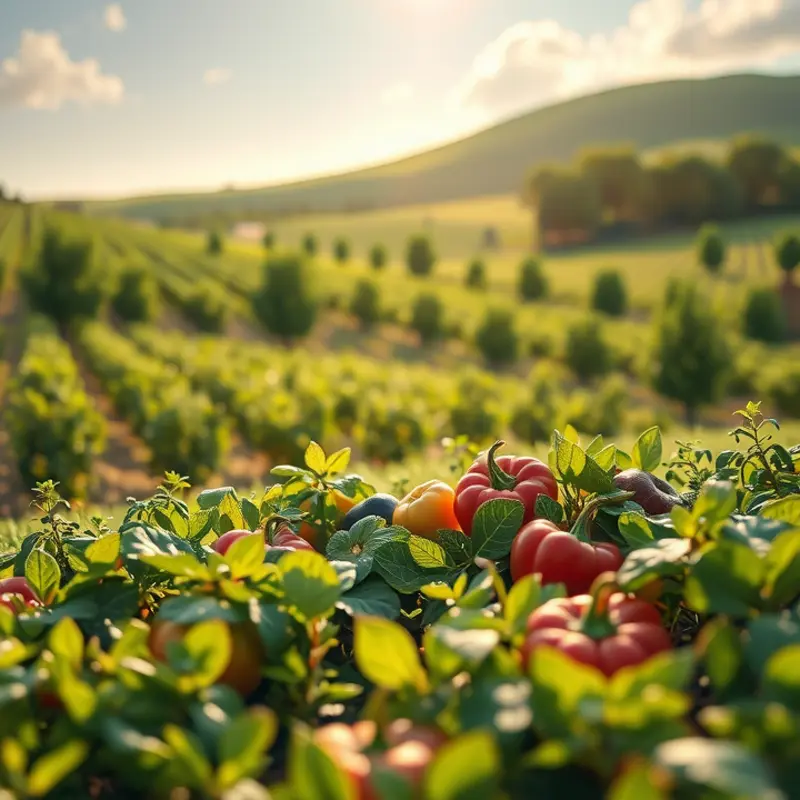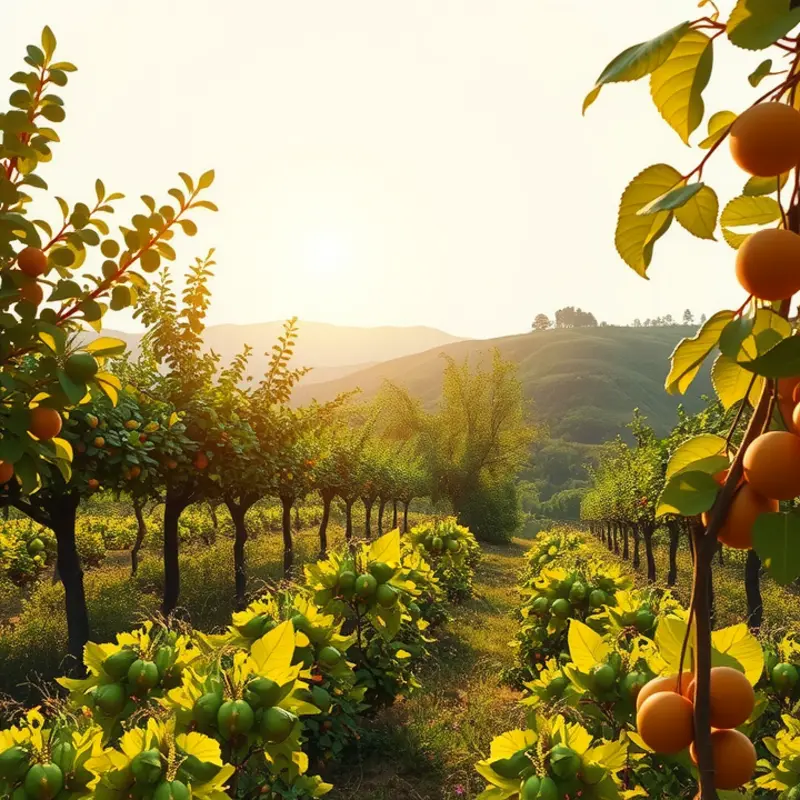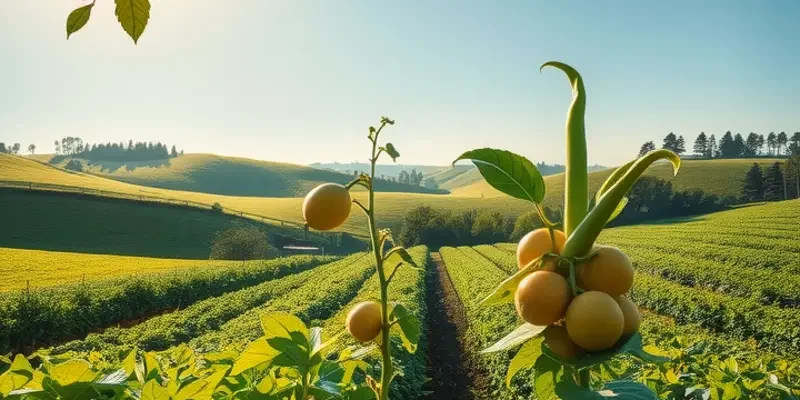Sustainable agriculture is more than just a buzzword; it’s a purposeful movement towards environmentally-friendly food production. By choosing sustainable practices, we can minimize the ecological footprint of farming while ensuring the health of our planet. Understanding sustainable agriculture is crucial for making informed food choices that align with our values and promote a healthier planet for future generations. Let’s delve into what defines sustainable practices, their importance, and how we can embrace them in our daily lives.
Understanding Sustainable Agriculture: Principles and Practices

Sustainable agriculture is a holistic approach to farming that seeks to balance environmental health, economic profitability, and social equity. At its core, it aims to meet the needs of the present without compromising the ability of future generations to meet their own needs. This balance is critical in addressing the challenges posed by conventional agricultural methods, which often lead to soil degradation, water scarcity, and loss of biodiversity.
One of the primary principles of sustainable agriculture is environmental stewardship. This involves practices that safeguard natural resources and promote biodiversity. Key to this is crop rotation, a practice that involves alternating the species of crops grown on a particular piece of land in successive seasons. Crop rotation improves soil quality, disrupts pest cycles, and reduces the need for chemical fertilizers, thus decreasing environmental pollution.
Another vital principle is water conservation, indispensable in regions facing severe water shortages. Sustainable practices include the use of drip irrigation systems, which minimize water waste by delivering water directly to plant roots, and rainwater harvesting, which captures and stores rainwater for later use during dry periods. These methods ensure efficient use of water resources, aligning with the global need for sustainable water management.
Permaculture is another practice embodying sustainable agriculture principles. It integrates land, resources, and people through mutually beneficial synergies. Permaculture designs agricultural ecosystems that are sustainable and self-sufficient by mimicking natural ecosystems. This approach often includes creating food forests, which are designed to function like a forest ecosystem but yield food and other resources for human use.
Organic farming is also central to sustainable agriculture. It avoids synthetic pesticides and fertilizers, instead relying on natural alternatives to enhance crop growth and soil fertility. This method promotes healthier soil, which in turn supports more diverse plant and animal life. Moreover, organic farming often uses mixed cropping and intercropping techniques to naturally manage pests and optimize the use of space and resources.
These practices all contribute to reducing the use of harmful chemicals, a significant aspect of sustainable agriculture. By limiting synthetic inputs, farmers protect their soil’s health and the ecosystem’s integrity, leading to cleaner waterways and more resilient agricultural systems. Moreover, these practices support biodiversity both above and below ground, creating a more balanced and sustainable ecosystem.
Economically, sustainable agriculture can offer resilience and stability to farmers by reducing dependency on expensive, non-renewable resources. Furthermore, by promoting local food systems, these practices strengthen communities, encourage local economies, and provide better access to fresh, healthy food.
For consumers wanting to embrace sustainable agriculture, it’s essential to consider eco-friendly food choices that support these principles. For guidance on integrating such practices into everyday life, resources such as eco-smart kitchen storage provide valuable tips for reducing waste and maintaining a sustainable household.
Ultimately, sustainable agriculture supports a future where food systems are reliable, equitable, and environmentally sound, highlighting the critical role of informed consumers and community-driven initiatives.
Your Role in Promoting Sustainable Agriculture

The journey toward a more sustainable food system begins with individual choices. By deciding to support sustainable agriculture, you can significantly influence food production practices and contribute to environmental conservation. Here are some actionable steps you can take to promote sustainable agriculture in your daily life.
Start by choosing organic produce when shopping. Organic farming avoids synthetic fertilizers and pesticides, promoting soil health and reducing pollution. Although organic produce may sometimes be pricier, every organic item you purchase sends a message of support for agricultural practices that prioritize ecological balance. When selecting organic products, look for certification labels that guarantee these standards.
Supporting local farmers is another impactful way to contribute. Local produce often results in a smaller carbon footprint due to reduced transportation distances. Visit farmers markets and community-supported agriculture (CSA) programs to purchase locally-grown food. These interactions not only help local economies but also foster a connection with the food you consume and those who produce it. Buying seasonally ensures that your food is fresher and more sustainable.
Implementing home gardening is an enriching and sustainable practice. Whether you have a spacious backyard or a small balcony, growing your own herbs, fruits, and vegetables can be immensely rewarding. Home gardening reduces dependency on store-bought produce and minimizes packaging waste. Use compost from kitchen scraps to nourish your plants and consider eco-smart kitchen storage solutions to enhance efficiency and reduce waste.
Conscious meal planning plays a critical role in sustainable agriculture. By being mindful of the ingredients you purchase and consume, you can minimize food waste. Prioritize recipes that utilize all parts of a vegetable or leftovers, thus making the most out of each ingredient. Engage in practices like batch cooking and freezing to ensure that no food goes to waste, and consider joining community initiatives that aim to redistribute excess food.
Additionally, advocating for sustainable agriculture involves educating others and participating in dialogues about food practices. Joining local gardening clubs, attending workshops, and sharing knowledge with friends and family are effective ways to spread awareness. Encouraging individuals to make conscious food choices contributes to a collective societal shift towards sustainability.
Finally, understand that activism extends beyond personal choices. Support food brands that adhere to sustainable practices and engage in corporate responsibility. Research companies before making purchases to ensure they align with your values of protecting the environment. By fostering a demand for sustainably produced goods, you push more producers to adopt eco-friendly methods.
Together, these actions empower you to make significant contributions to the sustainability of our food systems. By embedding these practices into daily routines, we can collectively shape a future where agriculture not only feeds people but also nurtures our planet.
Final words
Embracing sustainable agriculture is not just about lowering our individual impact; it’s about building a community that values ecological health and future-focused practices. By understanding the principles of sustainable farming and actively choosing to support these initiatives, we can transform the agricultural landscape. Each purchase of sustainable produce, every local farm visit, and all efforts to grow our own food contribute to a collective movement towards environmental recovery and preservation. Your choices matter, and the journey towards sustainability begins with small, intentional steps.








